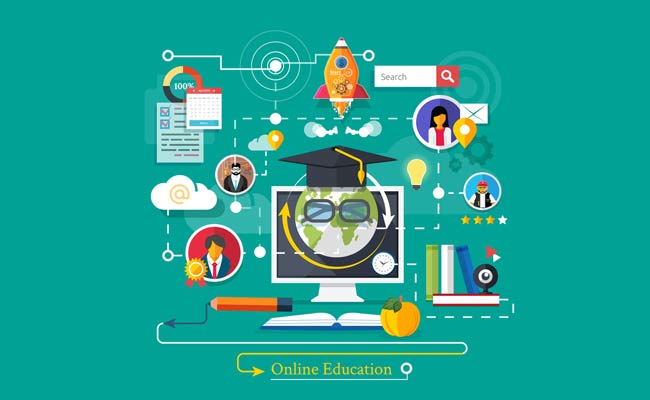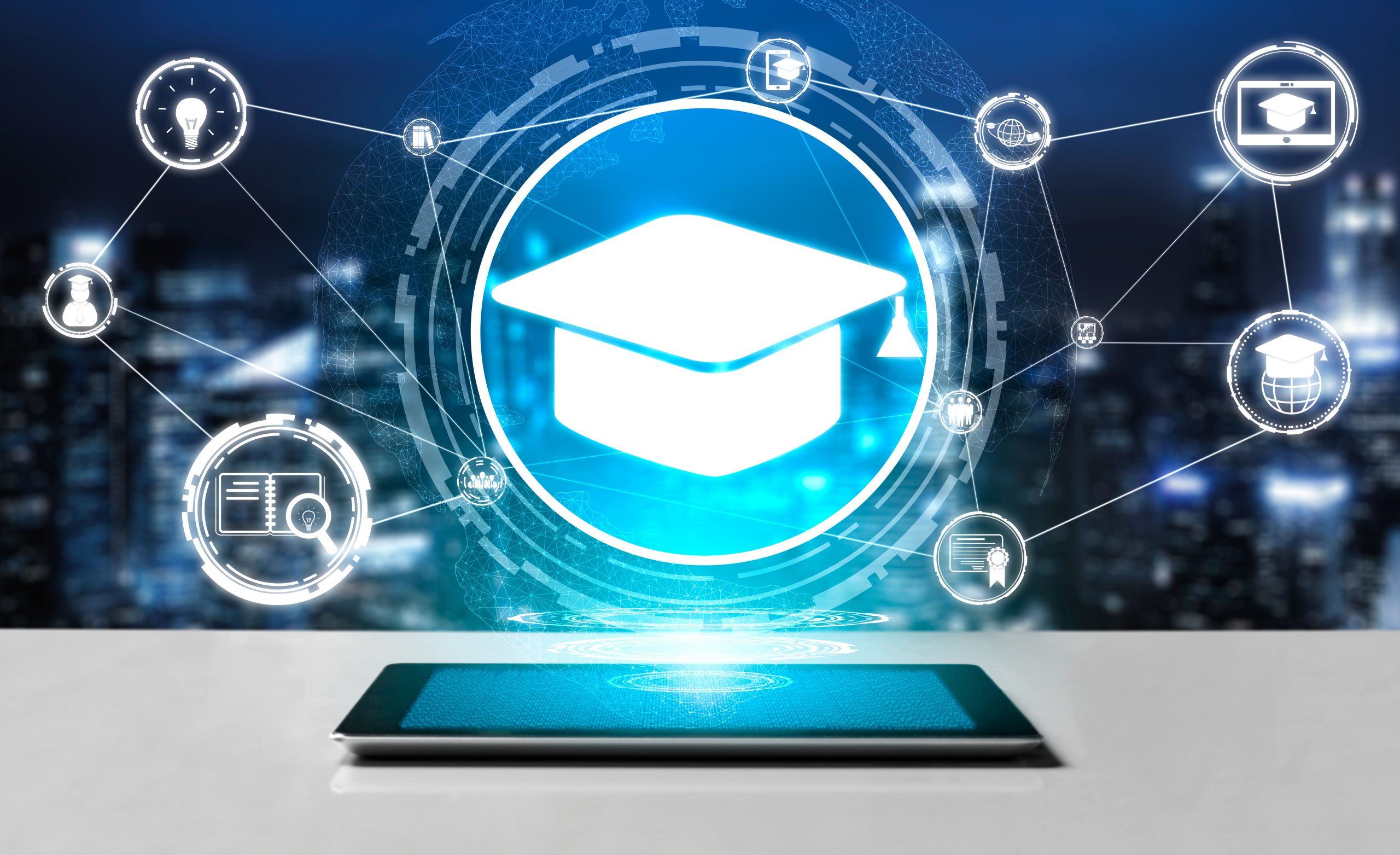Important Resources for Institutions to Improve Their Technique to Technology Education
As establishments aim to improve their innovation education structures, the recognition and implementation of crucial resources end up being extremely important. Cutting-edge curriculum layouts that integrate innovation, alongside efficient on the internet understanding platforms, can substantially broaden educational ease of access and interaction.
Ingenious Educational Program Styles
In today's rapidly developing technical landscape, instructors are significantly recognizing the demand for innovative educational program layouts that properly incorporate technology into discovering experiences. This combination is vital for preparing students for a future where electronic literacy is extremely important. Innovative curriculum styles integrate different pedagogical methods, making certain that innovation functions as a tool for enhancing engagement and assisting in much deeper knowing.
One effective method is project-based discovering (PBL), where trainees engage in real-world troubles, making use of innovation to research study, collaborate, and offer their findings. This method not just cultivates essential reasoning however also motivates the development of soft abilities such as teamwork and interaction. Furthermore, flexible knowing technologies can individualize the academic experience, satisfying specific understanding designs and speeds.
Additionally, interdisciplinary techniques that blend subjects, such as combining science and innovation with the arts, help develop a much more holistic understanding atmosphere. This fosters imagination and advancement, gearing up trainees with the skills necessary to thrive in a facility, interconnected world. Inevitably, ingenious educational program layouts are essential for cultivating a generation of students who are not only skillful in technology yet are also experienced problem solvers and critical thinkers.
Online Discovering Operatings Systems
Numerous educators are turning to on the internet learning systems as essential devices for improving academic ease of access and involvement. These platforms help with a crossbreed understanding environment that fits varied understanding styles and paces, making education and learning much more comprehensive. They supply a variety of resources, consisting of video clip talks, interactive simulations, and conversation forums, making it possible for students to gain access to content from anywhere at any kind of time.
Prominent on the internet knowing systems, such as Coursera, edX, and Moodle, supply institutions with the facilities needed to provide high-grade technology education and learning. These platforms can be personalized to straighten with particular educational program objectives and instructional approaches, making sure that organizations can keep their academic criteria while leveraging electronic resources.
Furthermore, on the internet learning systems support collaboration among instructors and trainees, cultivating a sense of area and shared finding out experiences. Advanced analytics tools readily available on these systems permit educators to track pupil development and engagement, promoting prompt interventions when needed.
Expert Growth Opportunities
Constant expert growth is important for educators seeking to remain abreast of arising modern technologies and instructional techniques in a swiftly evolving academic landscape (Education). To successfully incorporate technology right into the classroom, teachers need to proactively go after opportunities that boost their skills and expertise
Organizations need to focus on providing seminars, training courses, and workshops concentrated on the most up to date technical developments and teaching techniques. These programs can resolve numerous elements of modern technology education and learning, consisting of coding, electronic literacy, and using academic software. Furthermore, partnering with neighborhood universities and technology companies can offer instructors access to specialized training and sources.
Online professional advancement systems additionally use adaptability, permitting educators to read involve in self-paced learning. Webinars and online seminars can promote knowledge sharing among teachers worldwide, cultivating an international point of view on technology combination.
Furthermore, mentorship programs can attach knowledgeable instructors with those new to innovation, promoting collective understanding and support. By producing a culture of continuous knowing, establishments can encourage teachers to embrace ingenious mentor methods, eventually improving pupil involvement and success in technology education. Purchasing expert advancement not only advantages instructors yet additionally substantially enhances the finding out experience for pupils.
Collective Devices and Resources
Reliable assimilation of technology in education and learning likewise counts on the use of collaborative devices and sources that promote interaction and team effort amongst teachers and students. Such devices improve involvement and promote a society of partnership, vital for contemporary learning settings. Platforms like Google Work Area and Microsoft Teams allow real-time file sharing, task monitoring, and smooth interaction, enabling groups to collaborate efficiently no matter geographical barriers.
In addition, learning administration systems (LMS) such as Canvas and Moodle provide structured settings for collaboration, where instructors can develop online forums, designate website here group tasks, and help with discussions. These platforms not only simplify instructional distribution however additionally motivate peer-to-peer communication, crucial for building crucial reasoning and analytic skills.
In addition, tools like Padlet and Trello can be utilized to picture concepts and manage tasks collaboratively, boosting project-based understanding experiences. By incorporating these collaborative sources, organizations equip both trainees and educators to contribute actively to their discovering journeys. Inevitably, the efficient usage of collaborative tools not just enhances the instructional experience yet additionally prepares students to grow in an increasingly interconnected world.
Neighborhood and Market Collaborations
Area and industry partnerships play a vital function in improving innovation education and learning by connecting the space in between academic understanding and useful application. These cooperations provide students with real-world experiences, allowing them to use classroom principles to actual challenges dealt with by organizations. By engaging with local organizations and area companies, educational institutions can create vibrant understanding settings that cultivate advancement and ability development.

Additionally, these partnerships can result in resource sharing, where organizations take advantage of market technology, expertise, and funding. Such support not only boosts weblink educational offerings but additionally assists to grow a labor force that is well-prepared for the challenges of the modern-day economic situation. Eventually, the harmony created with community and sector collaborations is vital for promoting a culture of constant discovering and adaptation in modern technology education, making sure that establishments stay receptive to developing technological landscapes.
Verdict

One effective approach is project-based learning (PBL), where students involve in real-world problems, utilizing innovation to research study, work together, and present their searchings for. In addition, flexible knowing innovations can individualize the academic experience, providing to specific discovering designs and speeds.
Furthermore, mentorship programs can attach experienced teachers with those brand-new to innovation, promoting joint understanding and assistance. By creating a society of continuous understanding, establishments can equip instructors to embrace innovative mentor methods, eventually boosting student engagement and success in modern technology education and learning. Inevitably, the synergy produced with area and industry partnerships is crucial for cultivating a society of continual understanding and adaptation in innovation education and learning, ensuring that institutions remain responsive to evolving technological landscapes.